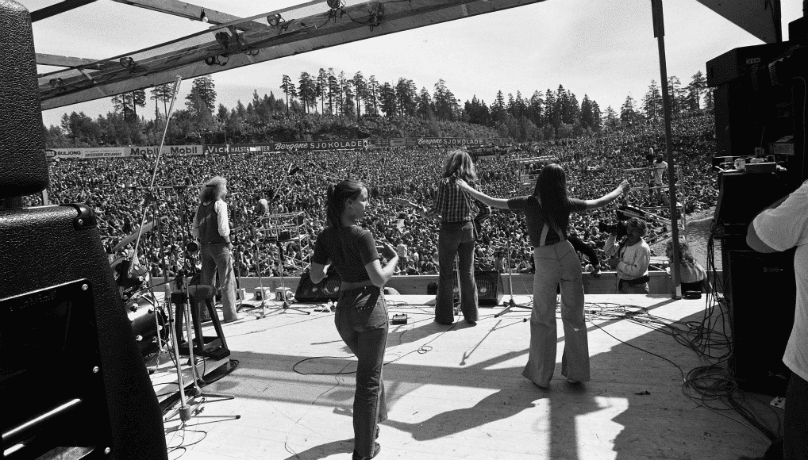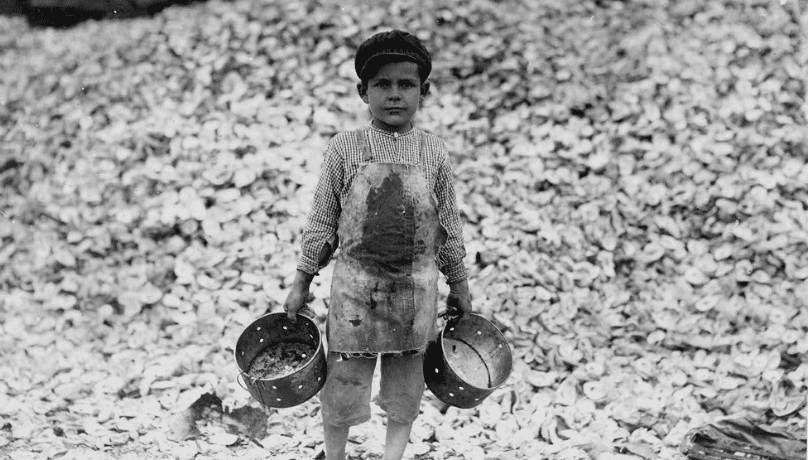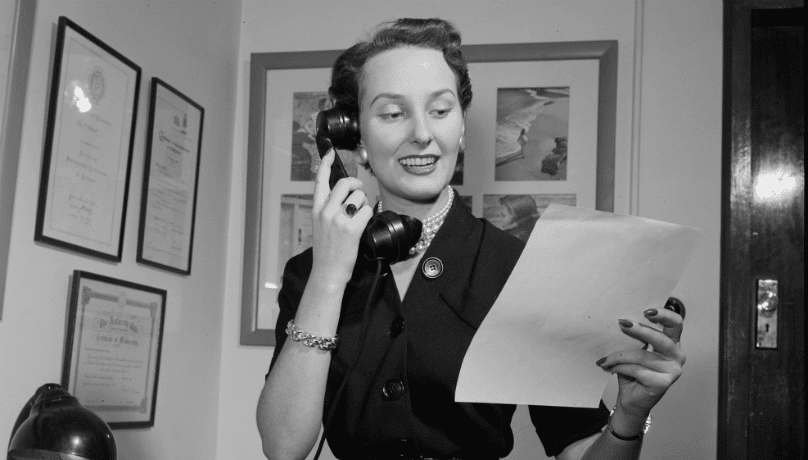How to Start your Career in Event Management
If you’re looking for a job that’s full of creativity, variety and exciting opportunities, you may be considering event management as a career option. Perhaps, you’ve already taken the first steps in your events career or are looking for a career change. For the right person, event management offers fantastic opportunities including travel, experience and progression.
In this guide, we look at what qualities you need to become a successful event manager, what you can expect from the industry as well as advice from event experts on how to make your way in this exciting career.
Is event management a good career?
There are hardly any jobs that offer you the same scope of creativity, socialising and travel than a career in event management. The industry is so varied that you can find yourself organising a wedding in the Welsh countryside one day, to organising a surf competition on the coast of Cornwall the next.
Event manager Louisa Douglas says: “I love the rush, no two days or events are the same, it’s an agile industry that’s always changing, plus I get to meet new people all the time.”
Working closely with clients to plan and deliver a successful event is extremely rewarding and the industry offers fantastic career progression. Sound good? Keep reading.
Starting an event in career management
Events is an exciting industry with many different career paths to choose from. To get into events management, you’ll need to consider what event planner skills and qualities you’ll need and the types of events you’d like to specialise in. It also makes sense to gain some experience to help narrow down your options.
What are the different types of events I could be working on?
As a private or corporate event manager, you might specialise in a particular type of event or work on a variety of different events. This can include, but is definitely not limited to:
– Cultural events
– Exhibitions
– Trade fairs
– Fundraising and social events
– Music festivals and shows
– Parties and weddings
– Promotions and product launches
– Dance shows

How to become an event planner – getting started
So you’ve decided that a career in event management is the one for you. In this section we look at how to break into the industry and how to make yourself an attractive candidate for potential employers.
What skills does an event organiser need?
In addition to being creative, hard-working and a people person, you’ll also need some of the following event management skills:
– Excellent organisation
– The ability to multitask
– Good communication and people skills
– Have a creative approach to problem-solving
– A high level of attention to detail
– The ability to work under pressure and meet tight deadlines
– Good negotiation, sales and marketing skills
– Budget awareness
– High degree of energy
– PR skills are a great bonus
Do I need event management qualifications?
There is no minimum qualification requirement to become an event manager. Anyone with strong organisational skills, creativity and excellent PR skills can enter into the industry. However, if you decide to undertake a qualification to prove your talent and knowledge on your CV, there are various professional courses available.
Graduate careers advisors Prospects say: “You don’t need a degree to become an events manager and you can work your way up from an assistant position, gaining experience as you progress. It may be useful to take the Level 2 Certificate in Event Planning, although not essential.”
Entry level event management qualifications:
– Level 2 Award in Event Planning
– Level 2 Certificate in Live Events and Promotion
Higher level event management qualifications:
– BTEC Level 3 Certificate in the Principles of Event Management
– Level 3 (NVQ) Diploma in Event Management
– Level 3 Diploma in Live Events and Promotion
– Level 4 Award in Conferences and Events Operations
Qualifications can help you with event management theory, but they’re by no means essential. Even with an event qualification you’ll still need to find work experience in the industry to make you an attractive and well-rounded candidate. Being able to show potential employers that you have hands-on practical experience will stand you in good stead.
Tips to help you start your career in events
Gaining experience can be hard, especially if you’re only starting out. Here are a handful of tips to help you get your foot in the door and start your event planner career path.
Be up-to-date with market trends
The events industry is always progressing. Stay on top of market trends and emerging technology by reading blogs, articles and books by industry experts. Make a note of the resources you use and be sure to mention them in your interview – it’ll show willing.
Know what events companies are right for you
Although some events companies will work with a variety of events, many will specialise in one type. This can be charity, music, corporate, conferences, etc. Do your research into each of the sectors – more on this later – and make sure that you target the right company for you.
Network
Social media makes networking easier than ever before. Sign up to Twitter and LinkedIn and start following and connecting with industry influencers, event companies and relevant people. Listen to what they say and interact with them where you can. Once you’ve built that online relationship, be brave and contact them directly asking for advice or potential job vacancies. Learn how to use social media to network by reading our guide.
Be creative at the interview
In such a creative industry, you need to make an impression by thinking outside of the box. If you haven’t been asked to prepare something for the interview, take the initiative and come up with some ideas that would help raise the profile of their company. Going above and beyond will prove your enthusiasm for the industry.
Do work experience
In the competitive events industry, work experience is a must. An event management apprenticeship, internship or university placement will give you a good introduction to the industry as well as looking great on your CV.
Prospects says: “Relevant experience, either paid or voluntary, and knowledge of the industry is essential to break into this competitive field. Some degree courses have an optional year in industry and this can be a great way of developing relevant experience and making industry contacts.”
With so many people battling for valuable paid work experience, consider voluntary work or organising your own social events. Any hands-on experience will make you an attractive prospect to a potential employer.
National Careers Service says: “You could gain experience of organising events and activities in your social life. Paid or unpaid work as a crew member at large events or exhibitions can also be a good way of building contacts within the industry. “
How to become an event planner with no experience
If you don’t have any experience in the event industry, it can be difficult to find employment. As the best way to learn the event management skills you’ll need is on the job, some type of work experience is essential.
If you’re struggling to find an internship, consider voluntary event work for not-for-profit organisations. This will give you valuable insight into the events world and help you get a foot in the door.

Where do I find an event management job?
As well as trawling the usual job sites such as Reed, Jobsite and Total Jobs, look for specific event job sites such as Association of Event Organisers (AEO). These sites also have great career advice and networking opportunities.
You can also sign up to a specialist event recruitment agency such as:
It’s their job to find you a job, and they will leverage their existing networks to find a suitable role just for you.
For a more proactive approach to finding an event management job, LinkedIn is a good way of finding contacts within the industry. You could also try making targeted, speculative applications to event companies that you’re passionate about.
Networking opportunities at events
Finding careers in event management can be easier with networking. A lot of jobs are found by word-of-mouth, with clients recommending your services. That’s why it’s important to put yourself out there to gain opportunities.
Attend industry events and introduce yourself to other event professionals, arranging to meet up at a later date. Bring a business card if you have one, and connect to the people you meet on social media. Sites such as EventBrite and Meetup will list any local events taking place.
Before attending an event, make sure to do your homework. Look into talks or exhibitions that align with your career goals to make the most of your time and build valuable connections. Also follow hashtags relevant to the event so you can contribute to the conversation in the build up – interacting with fellow event planners beforehand can also make it easier to strike up a conversation at the event itself.
Attending events and meeting new people can feel daunting, especially when you’re putting yourself front and centre. But remember, everyone has started from somewhere, and networking is regularly encouraged at events. So take a breath, grab a drink and introduce yourself with a smile.
Life as an event planner – What to expect?
It’s hard to say what a typical day looks like for an event planner as each day can vary greatly. It will depend on where you’re working, who for, the type of events you’re specialising in and which stage of the event planning process you’re in. But that’s all part of the fun, right?
What is the difference between an event manager and event planner?
The terms ‘event manager’ and ‘event planner’ are often interchanged, with clients not knowing exactly which they need to hire for their event. Although many of the skills and roles overlap, there is one main difference.
An event planner is responsible for the planning prior to the actual event. This includes choosing the venue, theme, layout and caterers. The event planner will make sure everything is in place for the event, building frameworks to ensure that the event runs smoothly once it starts.
An event manager is responsible for planning and managing the actual event itself. As well as the pre-planning, they will be there on the day ensuring that logistics such as staff management, room layout and schedules are on track.
Simply put, if a client wants an event planned but is happy to execute the actual event themselves, they will need an event planner. However, if they require an event to be planned and for someone to be on-site during the event, they will need an event manager.
What is the difference between working in-house, for an events company, or as a freelancer?
As an event manager, you have the choice of starting your own business, working for an event planning agency or for a company working on their in-house events.
Each path has its own exciting benefits. Don’t feel as though you need to limit yourself to one throughout your career, many people find themselves swapping between them over the years.
Benefits of working for an event management agency
If you’re starting out in the industry, working for an event management agency is ideal. You’ll get to work in a creative atmosphere with people who share your passion, you’ll learn straight from the experts and gain that valuable experience that you need to progress in your career.
Benefits of working in-house event management
Working in-house on company events means that you’ll become an expert on your ‘client’, knowing the ins and outs of the company you work for. In-house events teams are often smaller, meaning that you’ll get to experience the total variety that an event management role can offer.
Benefits of being a freelance event manager
It would be challenging for anyone to graduate from an event management course and start working as a freelancer without experience or contacts. Ideally, you need to get a year or two of experience under your belt working for an event agency or in-house event department. Once you’ve gained that essential experience, the freelance world is your oyster.
10 benefits of being a freelance event manager:
– Flexible working days and hours
– You can choose your own clients
– Your overheads are lower so you could earn more
– You have creative freedom
– You can choose your diversity of work
– You choose the services you offer
– You’re able to work remotely
– There’s a high demand for freelancers
What is a typical day for an event manager?
An event manager’s role will vary from day to day, project to project.
Because you’ll oversee the whole project, from initial planning through to running the event, your days can look quite different. They can range from a 7am start co-ordinating the build of a conference or exhibition, to an 11pm finish for a dinner or evening event. In the lead up to the event, you’ll usually work from an office, whereas on the day of the event you should expect to be on-site.
One of our event experts says: “Depending on which area of Event Management you work in and which organisation you work for, the working hours can be quite demanding, so you should be prepared for shifts out of regular working hours.”
No two days are the same but your role will include:
– Meeting with clients to find out what they want
– Agreeing budgets and timescales with the client
– Coming up with original ideas for events – this may involve running virtual or hybrid events.
– Researching & negotiating with venues and suppliers
– Booking venues, entertainment, equipment and supplies
– Hiring and supervising contractors such as caterers and security
– Management on the day to ensure everything runs smoothly
– Ensuring that health, safety and insurance regulations are followed
– Managing an events team, volunteers etc.

How much do event managers make?
Event management can be a lucrative career. The National Careers Service advises that average salaries can range between £21,000-£40,000, depending on experience*.
*This is the national average and therefore includes London where salaries are often higher than the rest of the country.
Event management career progression
Event management career paths can vary, but generally you will start as an events assistant and advance to a team leader, managing a smaller team before moving on to senior roles. However, this can all depend on who you’re working for, your experience and your abilities.
What are the career opportunities in event management?
With experience and a successful track record, you could run events that have larger budgets, manage a team, go freelance or even set up your own events management business.
Your event management career path is largely dependent on being proactive, however, it’s possible that your company may offer training courses, either in-house or externally.
If you’re looking to progress in your career and broaden your knowledge and skillset, consider taking a course by professional bodies such as the:
– Association of Event Organisers (AEO)
– Association of British Professional Conference Organisers (ABPCO)
– Meetings Industry Association (MIA)
These courses cover topics such as event marketing, finance, health & safety, project management and sales.
Event management career advice from the experts
Louisa Douglas – events professional
Time in the industry: 12 years
Why did you choose a career in event management?
I knew I wanted to be an event manager at 18 when I was tasked with organising a showcase event for our Media Studies course. I loved the adrenaline, running around trying to pull everything into position and problem solving throughout – I knew on that day it was what I wanted from my career.
How did you get into events?
I did attempt to do a degree in event management but university life didn’t suit me so I decided to drop out and go down the work experience route. I started in hotels as a trainee coordinator and worked my way up from there.
What part of your job do you love the most?
I love the rush, no two days or events are the same, it’s an agile industry that’s always changing, plus I get to meet new people all the time.
What advice do you have for people starting out?
Whilst I didn’t complete a degree, there is no harm in doing one if it suits the person, although I would say make sure it has at least a one-year work experience placement because experience is vital.
Have a think about what type of events you would like to plan and try to get an entry level job in that field, sadly in the events industry while all skills are transferrable it is so competitive it can be tricky to change sector.
Finally, be prepared to work hard, not always in the most glamorous conditions and for long hours – event management is not always as glamorous as it appears, but it is great fun and extremely rewarding.

Sara Carella-Lyne, Deputy Conference Centre Manager at 20 Bedford Way
Time in the industry: 5 years
Why did you choose a career in event management?
In my case event management actually chose me! When I moved from Germany to London a few years ago, I was offered a temp job working between Conferencing and Student Residences of the Institute of Education. When the opportunity arose to become a full-time member of staff within the conference team, I happily accepted. I enjoy working with other like-minded people and the diversity of the job – no event or client is ever the same.
How did you get into events?
I moved to London five years ago and that’s when I started working on the venue side of Event Management; selling space to clients, helping them with the logistics and making sure their events run smoothly. I had worked in in-house event management during my previous job in Germany, coordinating training and workshops for international staff members of the company I was working for which I enjoyed very much! It gave me the opportunity to travel to beautiful locations and get to know colleagues from all over the world.
What part of your job do you love the most?
I love organising in general, so helping clients to plan their event is second nature to me! I also like the client interaction that the job brings along. It’s great to be dealing with so many different people from different companies and backgrounds! Of course it’s a perk to be able to watch certain shows or talks that you are personally interested in, especially when someone famous is coming to the venue!
What advice do you have for people starting out?
You will need excellent customer service skills as you are dealing with people on a daily basis. A lot of new clients have heard about 20 Bedford Way through word of mouth, so you want to make sure you have happy clients at the end of the day.
Depending on which area of Event Management you work in and which organisation you work for, the working hours can be quite demanding, so you should be prepared for shifts out of regular working hours. A high level of organisational skills are crucial, as you need to always be thinking a step ahead.
20 Bedford Way – event experts
20 Bedford Way is a unique and flexible events venue in the heart of London and is the ideal performance space for theatre, conferences and comedy. With a range of rooms and breakout spaces available, contact us on 020 7612 6143 to find out how we can make your next event the best yet.
Nervous about planning your first event? Take a look at our common event planning mistakes guide to help ensure you cover all bases.
Main image: June Dally Watkins Modelling School, State Library of New South Wales via Flickr




